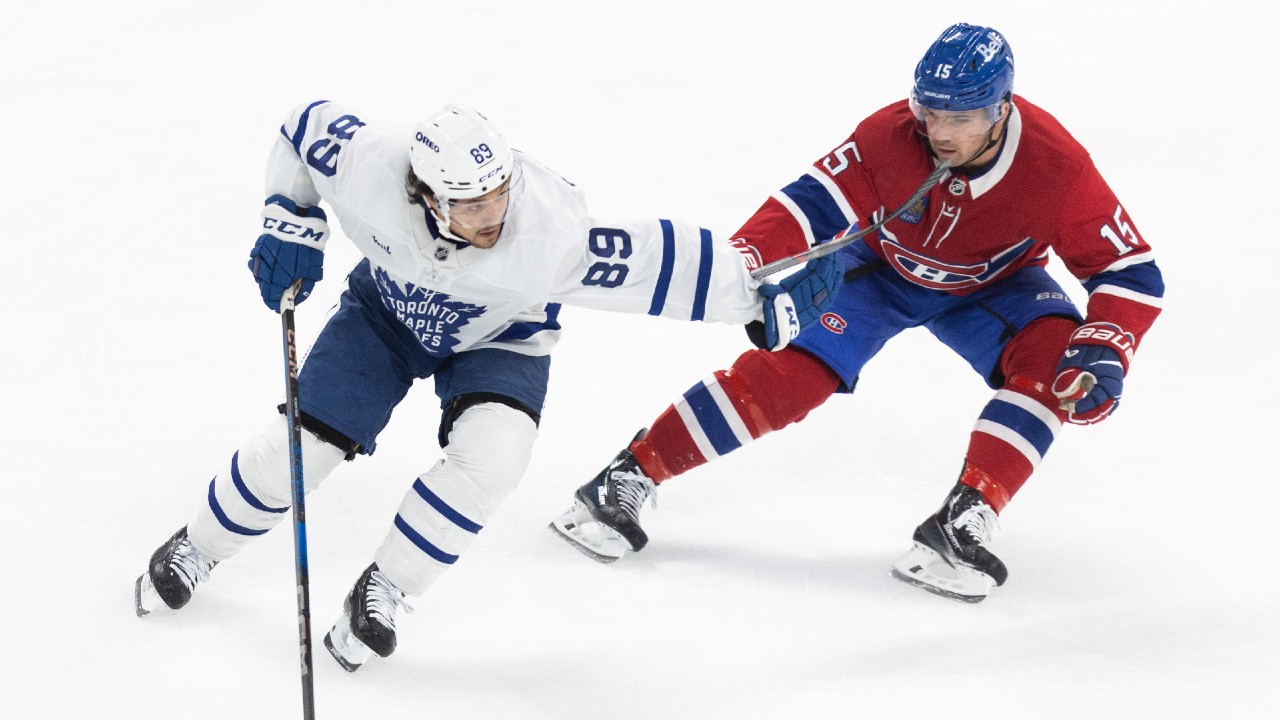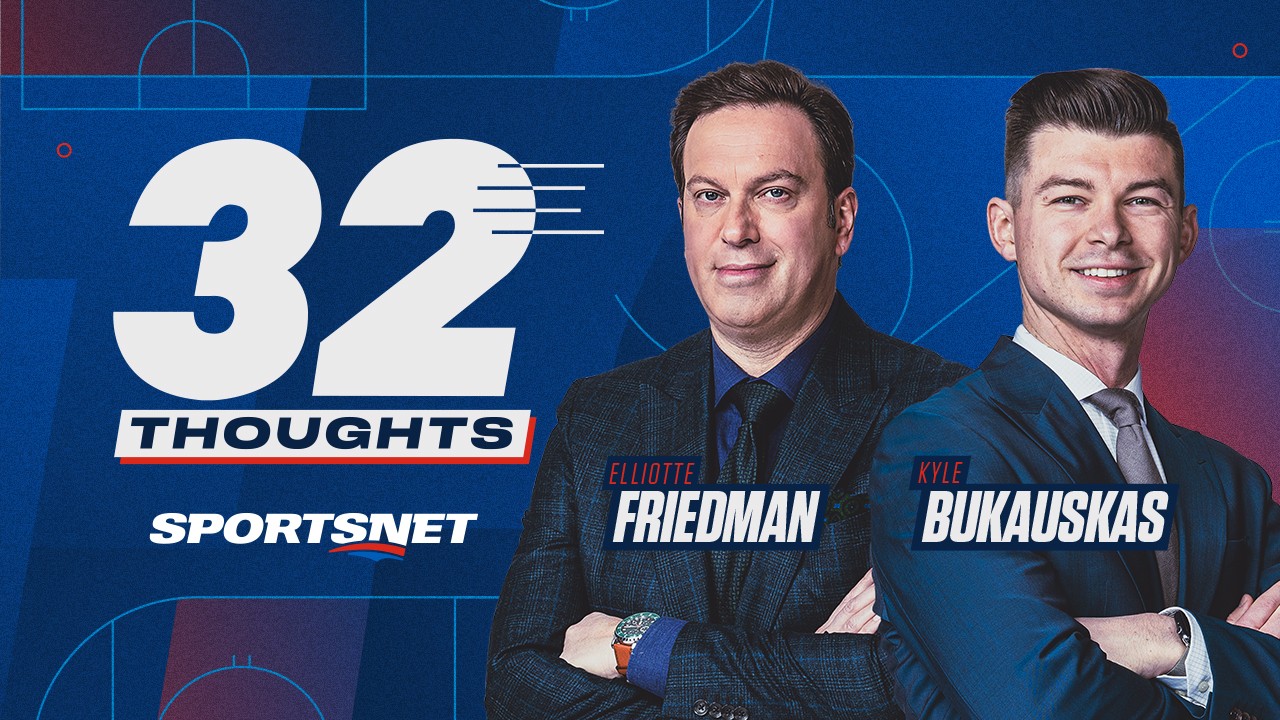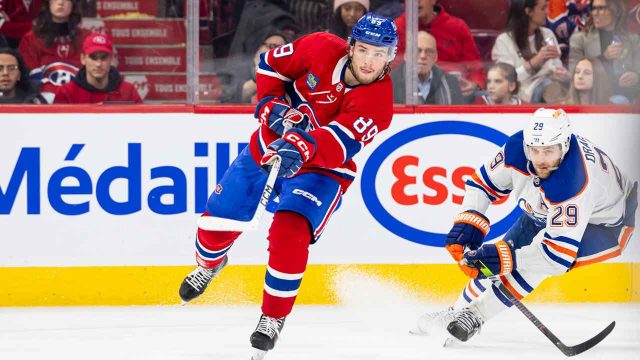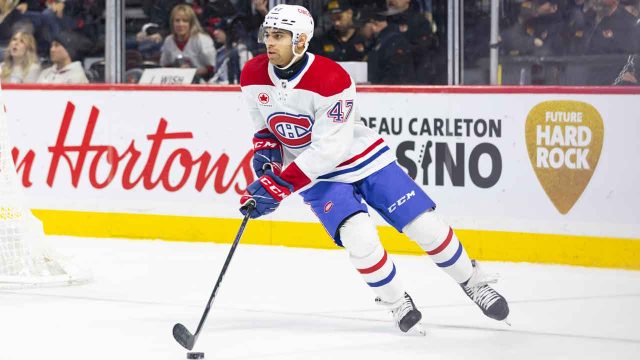
BROSSARD, Que. — In a moment of pure introspection, Martin St. Louis lets down his guard and says, “Sometimes I feel like I’m like the guy who Christian Bale plays in The Big Short.”
He’s referring to Michael Burry, the fast-thinking hedge fund manager who famously bet hundreds of millions of dollars on the United States housing market collapsing in 2007.
But St. Louis is not doing this during our 40-minute interview Tuesday to suggest he’s some sort of prophet.
No, he’s comparing himself to Bale’s portrayal of Burry to offer insight into how overactive his mind can be and how much care he takes to filter his thoughts instead of spewing them out to his players as streams of consciousness.
“The whole movie, his wheel is always turning, and I’m like that. Sometimes I feel like I can’t shut it off,” St. Louis says. “But I have to be careful about how I let these thoughts out. When I Iet them all out, I’m only taking care of one person — me. I have to be careful about just taking care of me.”
That is the guiding principle of his coaching style, and he will not stray from it.
St. Louis, the Hall-of-Fame-player-turned-NHL-bench-boss, is anything but selfish. And he is a nurturer, not a dictator.
It’s why even if the 49-year-old has accumulated enough hockey knowledge to solve every riddle his players face, he sees much more value in empowering his players to solve the riddles on their own.
“Sometimes I need to teach and pass on information,” St. Louis says, “but I really like the discussion approach with my players and steering them to the answers.”
What St. Louis has formed in going about his business that way is a bond with his players that he feels is foundational to the Canadiens’ future success.
He and they have learned a lot about each other since his installation behind the bench in February of 2022. Together, they’ve been building something that they feel can get them to a level most people outside the organization don’t think they can ascend to this season.
What is it?
“It’s the culture,” St. Louis says. “We talk about culture all the time, and to me, that is the most important thing. You can have all the talent that you want, and you can have the best system, but if you don’t have a good culture…”
We’ll finish that thought of his with another he offered two weeks ago: All you have is a house instead of a home.
In St. Louis’s view, the Canadiens have built a home — “an environment that the players love to be in,” he says, and one in which, “there’s a lot of respect that’s been earned, not given.”
The coach assures us his eyes are not deceiving him.
“I know what’s in here,” St. Louis says. “I’m not worried about what’s happening in other places. I don’t walk into other team’s rooms; I’m not comparing our culture to anyone else’s. But I have my own experience with teams and in the locker room and I know the successful teams I’ve been on have had this type of really good culture.”
The Lightning team with which he won the Stanley Cup in 2004 had much more than just that, and St. Louis knows it.
He knows structure, talent and depth are also essential ingredients of a winning recipe, and he feels the Canadiens have made progress in harvesting all of them.
Now St. Louis must leverage that progress.
That means demanding more of a group he feels has gained valuable experience under his watch.
“I think the responsibilities go up as you get older, and I expect more from all of them,” St. Louis says. “More is not so much about effort. Effort, to me, is the bare minimum, it’s non-negotiable. It’s about the understanding of our concepts and principles, the application of the collective game. I expect more from all of them in that.”
The Canadiens know.
As captain Nick Suzuki put it on Tuesday, roughly 32 hours ahead of the season-opener against the Toronto Maple Leafs at the Bell Centre, “We’re not the young team we were two-and-a-half years ago and there’s definitely higher expectations.”
“There’s definitely going to be more accountability in how things happen, and mistakes are definitely going to be seen in a different light now,” Suzuki continued. “We know that everyone’s held accountable and no one is safe straying away from the system and the plan.”
That means costly decisions will have consequences, selfish plays resulting in turnovers will lead to time on the bench, and time in the penalty box could lead to more than two minutes away from the ice.
That must be the approach for a team that has ranked seventh in penalties taken over St. Louis’s tenure. And that’s just one of the ways he’ll have to attack the problem.
We reminded the coach that 65 per cent of the teams that ranked in the top 16 in the category did not make the playoffs over the last three seasons. We posited that solving the malaise wouldn’t be as simple as constantly telling the Canadiens not to take penalties.
St. Louis agreed, saying, “I think it’s something that I’m going to address in practice this year.”
He pointed out that all the drills the Canadiens do revolve around simulating and replicating game-like situations and intimated that running through those drills cleanly would only make sense.
“There’s plenty of times I’ll turn to a player and ask, ‘Would you do that in a game?’ and they’ll say, ‘No,’ so, I’ll ask, ‘Then why would you do that here?’ because we’re trying to make sure we create the right habits.
“I think we have to do the same thing in terms of being disciplined.
“It’s also about having the mindset that the refs are not computers. You have to have a mindset of not putting yourself in a position where the ref might or might not call something. That line is so fine to walk, but if you understand it, you help yourself in not taking penalties.”
As for what the Canadiens will do when they draw power plays, St. Louis is taking on a much bigger role.
He joked earlier in camp, as the team was on its way to going 0-for-30 on the power play over its six pre-season games, that he’d have to have a long discussion with his power-play coach.
With Alex Burrows resigning as assistant coach to spend more time with his family, St. Louis was of course referring to himself.
He was an elite power-play player over his 1,134-game NHL career, producing 101 of 391 goals and 317 of 1,033 points on the man advantage. After that, he was hired by the coach who guided him to a Stanley Cup — John Tortorella — as a power-play consultant to the Columbus Blue Jackets in 2019. If anyone is suited to dig the Canadiens out of the NHL’s cellar in this department, it would be him.
St. Louis feels the Canadiens have enough talent to climb their way up from 27th, where they ranked in power-play goals last year. He believes they can do it even without Patrik Laine at their disposal for what could be upwards of three months at the beginning of the season.
But the coach will approach this task in the same manner he does all the other ones.
“I never liked to be overcoached, so I give my players on the power play the principles that we want to play within and then I’ll let them feel it out before we talk about it,” St. Louis says. “I feel like I create more discussions with them than actually telling them what to do. I’m trying to steer them towards the answers versus giving it to them all the time.”
The principles he’s referring to are straightforward, and he’s talked about them before.
The first one is for each player to position himself between coverage, filling the space afforded to him by the man advantage and doing so in balance with where the other four players on the power play are situating themselves.
The second one is enabled by executing the first one: Attack the weakness you’ve created as soon as you create it.
That requires a certain level of awareness St. Louis is trying to stoke in his power-play players.
“Sometimes you don’t realize that you broke the PK and you make two to three more passes instead of attacking at that moment,” he says. “Sometimes you’re going to realize on your way back to the bench that you did break it and didn’t take advantage of it, that you were in attack mode and just didn’t notice it. Sometimes the PK will break itself, sometimes they make mistakes. Did you recognize when they did it? Did you attack?”
These are things the Canadiens are going to have to sort out quickly.
St. Louis won’t hesitate to intervene if they don’t.
“If every time you set up it takes you 10 passes to pull the trigger, you’re not good at breaking the PK,” he says. “It’s going to happen sometimes that good PKs force you to make 10 passes, but if it’s always that you might want to rethink the setup you have and the personnel.”
The coach won’t be rejigging the penalty kill, which may have finished 24th in the league but was ninth-best over the team’s final 41 games of the season.
“I think we were just at a point where we had taught enough and the guys were grasping it enough that we were able to just make slight adjustments based on who we were going against,” he says. “Guys were recognizing the cues, so maybe it was just the maturity that we got enough reps that eventually it stuck and we were more connected. I expect us to keep driving that.”
St. Louis will keep driving the Canadiens forward his way.
It’s what he’s done since the start, when there was so much buzz about how he wouldn’t be able to come off his son’s bantam-team bench and adequately fill a role on one of the most prestigious ones in the NHL.
St. Louis heard that noise, just as he’s heard murmurs since about how he might be the perfect man to develop the team’s players but likely won’t be the one to coach them to championships.
But St. Louis isn’t consumed by any of that.
“I don’t even worry about it,” he says. “I think what drives me is — whether I’m here when they’re winning championships or not — my job is to leave this in a better place than it was before. Does that mean I’m winning Cups with this team? I don’t know. If I’m not (and someone else is), I know I’ll have played my role in that. I don’t know if I’m going to be that coach, and I don’t really care. I’m just focusing on advancing this group because if I worry about the other stuff I’m losing sight of the goal. I gotta keep my eyes on the ball.”
It’s coming at St. Louis faster this time around, with internal expectations rising and higher goals being set.
That’s how he wants it.
“I feel we’re ready to win more,” St. Louis says, conceding that 31 other teams in the league likely feel the same way as the season begins.
But he senses the Canadiens are ready for the next step.
All St. Louis wants to do is encourage them to take it.
“The guys really understand the principles we play with,” he says. “I didn’t invent the principles of hockey; I’m just teaching them. The game has rules — in space, versus pressure, and I’m not talking about offsides and penalties. The game has rules in terms of how you support and where you go on the ice depending on what’s happening, and our guys are showing they really know those rules. There’s been an evolution, and that helps our collective game. And I really believe in our collective game.”
St. Louis has many ideas on how to build it up further, but he’ll continue laying the foundation brick by brick.








